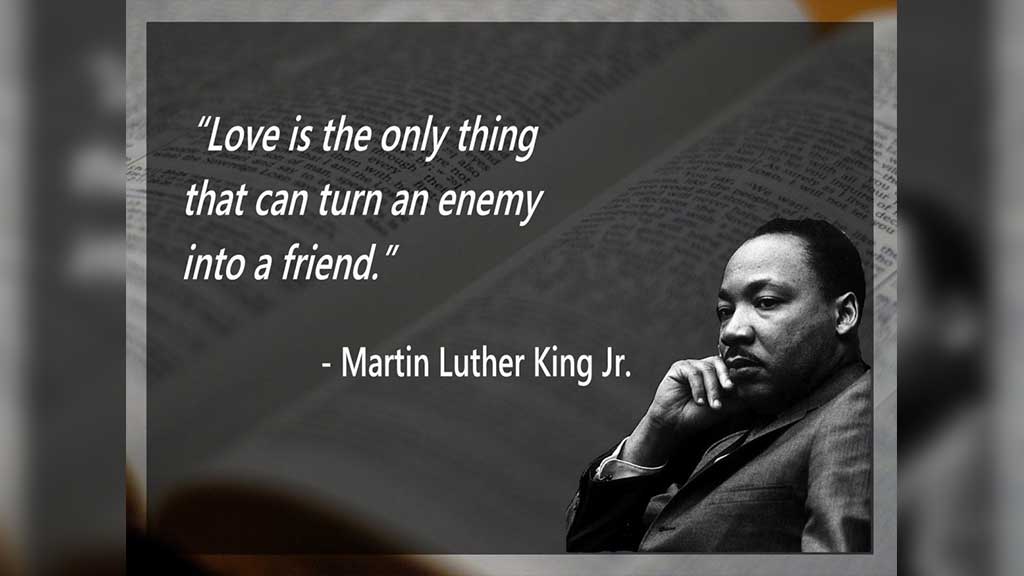The L-word is either overused or avoided completely. A child might say ‘I love jelly’, but an adult may be unable to say ‘I love you’ to the person they married.
Love is most clearly seen in the price someone pays in order to love others. Jesus said: ‘Greater love has no man than he who lays down his life for his friend. . . I have called you friends.’ [John 15:13ff]
But to what degree should we love? In Scripture we see this answered in the following way.
‘Love the Lord your God with all you heart, soul, mind and strength.’ [Luke 10:27] In other words, love God with everything you are: your beliefs (heart), your feelings (soul), your thinking (mind) and your ability (strength).
Jesus said: ‘A new commandment I give unto you: Love another as I have loved you.’ [John 13:34] How has Jesus loved us? Jesus has loved us with everything He is. He loved us so much he died for us. In the same way, Jesus says, love each other the same way you have received love from Him.
‘Love your neighbour as yourself.’ [Matthew 22:39] This command is known as the second command to love in the Hebrew Scriptures. We are to love those who we are associated with as much as we love ourselves. This command implies we are to love ourselves, not hate ourselves. St Paul applies this command this way: ‘Look not only to your own interests but also the interests of others.’ Treating every relationship with an associate as a contest does not lead to a blessed, successful life. Treating others the way you would like to be treated does. Jesus formulated the following rule: ‘Do unto others as you would have them do unto you’. This is a practical way of implementing this law of love. A culture that practices this is a good culture, a culture that does not do this is a bad culture. Not all cultures are equal.
It is important that this is a practice, not merely something that is talked about. It starts with the people closest to us: our spouse, our children, our extended family, our friends, our neighbours in the street, our customers, our suppliers, our leaders, our employees.
Anything that weakens this and replaces it with a contest culture, in which problems provoke conflict rather than working together to create solutions, is a backwards step. Nations that have this culture of ‘love thy neighbour’ are nations that people can feel at home in. Nations where everything is a conflict are uneasy places to live in, and people want to escape.
Lastly, Jesus said: ‘Love your enemies, bless those cursing you, do good to those hating you, and pray for those accusing you falsely, and persecuting you.’ [Matthew 5:44] Jesus did not say to love your neighbour with ‘all your heart, soul, mind and strength’, nor did He say, ‘Love your enemy as I have loved you’, nor did He say, ‘Love your enemy as yourself’. Nevertheless, He did say, ‘love your enemies’. This does not mean ‘Let them win’. But it does offer the possibility of a route out of conflict and into peace, if not friendship. It does not promise certainty, because if the enemy still is determined to fight their battle, then battle will continue.
Scripture says, ‘If your enemy is hungry, give him food to eat, and if he is thirsty, give him water to drink’. Again, this does not ensure peace and harmony breaks out, but it signals to the enemy that it could, if they were but willing to accept the truth of it.
If we want the world to be a less crazy place, this pathway to peace is the route to take.
The Lord bless you,
Graham Ford
President – Jesus Christ for Muslims

